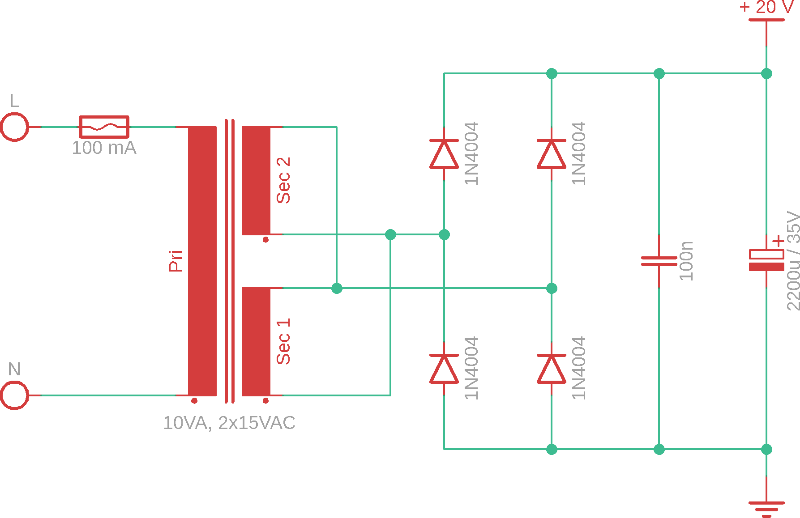Electrical circuits: DC, AC and transients. Analogy between electrical and mechanical quantities.
Electrical measurements and analog circuits: Measuring with multimeter and oscilloscope. Use of LabVIEW. The OP-amplifier model and how it is used in amplifier circuits and as a comarator. Use of filters to pass or block diferent frequency ranges.
Digital electronics and microcontrollers: Transistors in switched applications. Analysis and synthesis of combinatorical and sequence cirquits. The functionality of a microprocessor and a microcontroller. Use of microcontrollers in simple applications. Analog cirquits for signalcondition of sensorsignals before ADC (analog to digital conversion). Examples of sensors such as encoders and strain gauges.
Electrical motordrives: Single- and three- phase systems. Theory and properties of DC machines and PM synchronous machines. Principles for speedcontrol of electrical machines. Mechanical and thermal transients in electrical machines. Choice of machine size for time varying mechanical loads. Power electronics and drive units for machines. calculation of the required voltage and current for a motordrive.
Sustainable development: Electric and hybrid cars. Calculation of quantities such as e.g. energy, power, force, velocity, acceleration, current and voltage in different parts of a electric or hybrid car under different conditions such as acceleration or regenerative braking. Dimension of energystorages such as batteries and capacitors (ultracap).
After the course the student will be able to
- Analyze the conditions in simple circuits such as DC, AC and transient events of the first order.
- Choose an electric motor to a mechanical load whose torque varies in time.
- Calculate the speed, torque, power, current and voltage in different parts of an electric motor drive (consisting of mechanical load, electric motor and power supply) at constant speed and also during acceleration and braking.
- With given cooling conditions estimate the temperature of an electric motor for some time after a known load is applied.
- Able to explain the problems and possibilities of electricity and / or hybrid operation compared to other technologies for the propulsion of cars viewed from a sustainability perspective.
- Describe and perform basic calculations on different powertrain concepts for electric and hybrid cars.
- Designing an energy storage in an electric or hybrid vehicle to achieve the desired performance such as range. With energy storage means in this context mainly batteries and / or ultra-capacitors.
- Use a microcontroller to solve simple tasks such as controlling the voltage to an electric motor.
- Describe a system using a state diagram and write a program to control such a system.
- apply the OP-amplifier model to dimension and analyze basic circuits.
- dimension and analyze simple filters.
- Design a digital design to solve a combinatorial problem.
- Estimate the deviations in the measurement results.
- Connect simple electrical circuits.
- Connect electric measuring instruments such as multimeter and oscilloscopes to simple electrical circuits. Performing measurements with these instruments.
- Experimentally determine the current-voltage-characteristics of a device or component.
- Solve simple problems and show the solution function by performing an experiment.
- Give a short oral presentation about the outcome of an experiment or a laboratory exercise.
- Translate the substance technical terms into English.
- Work constructively in a group of 2-3 persons with laboratory and experimenta.
